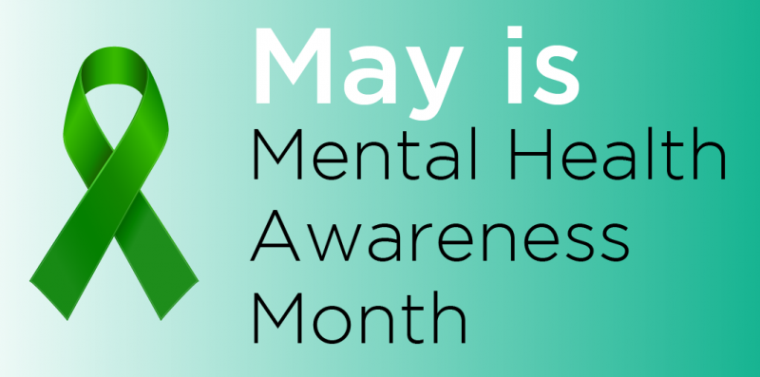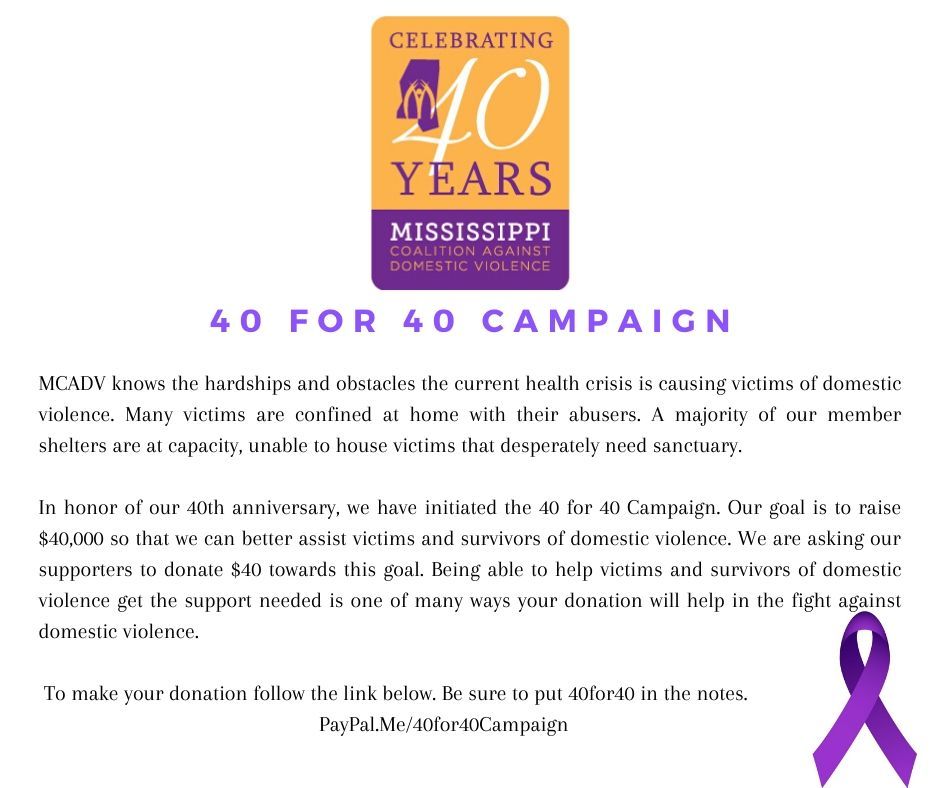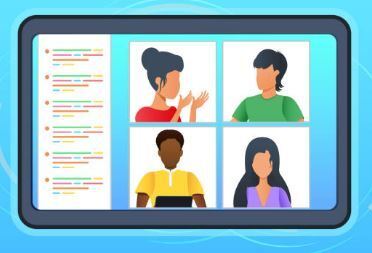
Mental Health Awareness – The Importance of Mental Wellbeing
May is Mental Health Awareness Month. Now more than ever, we need to be aware of our mental health and make sure that it is intact. For many, the COVID-19 pandemic has brought to light the importance of mental wellness. Mental health issues affect over 80% of people in the United States. Many people are unaware that being well is more than just being free of disease, it is also a state of overall well-being. Each of us goes through stressful times in our lives, and the development of good coping skills allows us to maintain mental health in the face of overwhelming stress.
Mental health is partly influenced by community factors such as a positive sense of belonging, community connectedness, activities to highlight and embrace diversity, social support, and participation in society. Due to shelter in place orders, these factors are now hard to establish. Being able to cope and bounce back from the stress and sadness that shelter in place orders bring is a step forward towards managing your well-being. To take that first step, we have to reflect on whether we are giving ourselves what we need to flourish and live well. Some questions to ask yourself are:
- Am I getting enough rest? Sleep affects mental and physical health, but it is sometimes the first thing we trade in when we get busy or stressed.
- Am I taking time to enjoy things I like? Taking time out for things you enjoy can make a difference to how you think and feel.
- Am I being physically active and eating right? Physical and mental health is closely linked, so adding exercise and nutritious food every day can make you feel better.
It is especially important to stay connected with others, but this can be difficult when current safety measures require us to isolate ourselves. Taking advantage of online and mobile communication tools such as Zoom and FaceTime can help alleviate those difficulties. Participating in virtual concerts and events can also help ease stress of not being able to have in-person interactions. Taking a break from watching or reading news stories (including social media) can help your mind be more at ease. Hearing about the pandemic repeatedly can be upsetting.
Asking for help is okay and necessary. There are various resources available for help with coping with mental health. If you or someone you care about is feeling overwhelmed with emotions such as sadness or depression, you can reach out to the Disaster Distress Helpline or the National Alliance on Mental Illness (NAMI) Helpline. You can find their contact information along with other resources below.
NAMI HelpLine – 1-800-950-NAMI (6264) or email info@nami.org
Disaster Distress Helpline – 1-800-985-5990, or text TalkWithUs to 66746
National Domestic Violence Hotline – 1-800-799-7233
National Suicide Prevention Lifeline – 1-800-273-8255
MCADV Provides Advocates a “Happy” Distraction During COVID-19 Pressures
It has been said that “We need rest and fun to sustain our daily grind.” In the spirit of this quote, MCADV developed and hosts “Get Happy Hour” on select Thursdays at 10 a.m. Its purpose is to give advocates a chance to step away from COVID concerns, breathe some fresh air, and have a little fun. In a couple of words, it is self-care. From our porches, backyards and various other places at home and at work, we meet to share tutorials on making your own mask, home improvement projects, beverage recipes, gardening ideas and Zumba routines. We share ideas about how to balance home and work life while sheltering in place. We chat about other topics of interest and we focus on what we all have in common – the need for meaningful connection. This is what Get Happy Hour has offered.
Our next meet-up is scheduled for May 21. It will signal the last session for the Spring. We will reflect on the past two months, give thanks for the gift of camaraderie, health and purpose.
A New Normal: Reconnecting Systems and Communities
As our society to continues to change and we begin to adjust to new norms and routines, we are reminded of those who have been victimized and endured traumatic abuse during the rise of COVID-19. Over the course of three months, dispatchers and national hotlines have reported spikes in Domestic Violence calls across the world. With the increase in calls and the reopening of cities and states, we are sure that the work to help victims and survivors may never look the same. Yet, it must be done. Often, we have discussed polices and information for advocacy to support victims and survivors of Mississippi. Although legislators have returned to the Mississippi State Capitol and are deciding on budgets and spending of the CARES Act, we understand now more than ever the importance to provide information to help shape and improve our community.
For the next few months, MCADV will highlight the many systems, programs and community resources that intersect with Domestic Violence. These systems are our partners in prevention and awareness of domestic violence in Mississippi. As we discuss these systems we will highlight the heroes behind the work, indulge in history of the interpersonal violence movement, learn how to effectively assist victims and build resourceful community relationship.
This article highlights Heather Wagner and the Office Against Interpersonal Violence at the Mississippi State Department of Health. OAIV is a direct funding office for domestic violence shelters and programs who provide relief for victims of domestic violence. Funding from OAIV is used to maintain daily operations at shelter programs, create programming to develop resources for victims and survivors and provide technical assistance and training to victim advocates in the state. Click here to read the transcript of Heather Wagner sharing her family roots in advocacy and discussing the work of the Office Against Interpersonal Violence.

Legal Guidance: Appealing a Protection Order
Victims of domestic violence often need and deserve a protection order. A protection order is an order from the court that allows for certain protections for a victim from their abuser. The protections that the victim receives depends on the victim’s case. If the abuser violates this order, then that person can be arrested.
There are times when a protection order ruling needs to be appealed. In the last year, a few changes were made in regard to how protection orders can be appealed. Protection orders granted or denied in justice, municipal, or county court can be appealed in chancery court. The filing fee must be paid when the written notice is filed. If a protection order is granted, then it is still valid during the appeals process until its expiration date. The trial for the appeal is to be held within 10 days of the protection order being filed. There is a filing fee to appeal a justice or municipal court order. However, there is no filing fee to appeal a county court order. The Mississippi Rules of Appellate Procedure govern appeals made from chancery court.

Teen Talk Tuesday – A Virtual Event Geared Towards Teens
Tuesday, May 12, MCADV launched the first in a series of Teen Talk Tuesdays. Presenters April Hernandez-Castillo and Marc Fomby addressed Teens and Mental Health and Teens and Relationships, a perspective on the unique challenges teens are facing during COVID-19. Over thirty participants from around the state joined the Zoom event, with Policy and Systems Advocacy Coordinator Robin Jackson serving as moderator. The webinar included a question-and-answer segment. Mrs. Hernandez-Castillo and Mr. Fomby highlighted realities that teens have lost jobs, are dealing with the cancellation of anticipated events, have to adjust to distance learning, are spending more time away from their peers and more time at home. They offered tips on managing the mental and emotional strain that may accompany these major adjustments. Mrs. Hernandez-Castillo shared, from a personal perspective, how difficult it could be to be in an abusive situation at home with no escape. Both presenters offered resources as well as recommendations of ways to care for oneself.
The next Teen Talk Tuesday is scheduled for the month of June. More detailed information will be available soon. For questions about Teen Talk Tuesdays, email support@mcadv.org.

